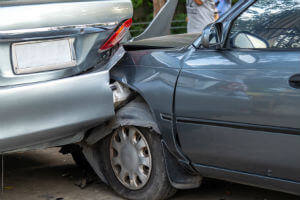 Tailgating is a contributing factor in thousands of car accidents each year. When you consider how distracted many drivers are when they are behind the wheel, it is easy to see why tailgating accidents are so common.
Tailgating is a contributing factor in thousands of car accidents each year. When you consider how distracted many drivers are when they are behind the wheel, it is easy to see why tailgating accidents are so common.
Tailgating is a violation of Georgia’s Uniform Rules of the Road, and violations of these rules can be considered negligence “per se,” which means the violation was negligence as a matter of law. Your attorney may be able to use this legal theory to help establish the fault of the driver who hit you.
The Savannah car accident attorneys at Roden Law are available to discuss your accident during a free case review. Contact us 24/7 at 1-844-RESULTS to schedule your free consultation.
What Does Negligence Per Se Mean?
Negligence per se means someone has done something that violates an existing law or statute. This person’s actions constitute a breach of his or her duty of care because the existing law or statute establishes what is considered reasonable care.
When an individual has a duty of care, he or she must act with reasonable care to uphold that duty, or he or she could be liable for injuries people suffer due to the breach of duty.
In a tailgating accident in Georgia, the theory of negligence per se may apply because tailgating is a direct violation of Official Code of Georgia § 40-6-49(a), which says drivers cannot follow other cars more closely than is reasonable or prudent.
Drivers must take the speed of other vehicles and traffic conditions into account to determine what is reasonably prudent and safe.
One way to determine if there is a safe distance between your vehicle and the one in front of you is to see how long it takes for your car to pass a stationary object after the lead car does. Once the lead car passes the stationary object you picked out, count the seconds until you reach the stationary object. You should have been able to count to three. If it took less time, you should slow down.
However, if you are in a larger vehicle, heavy traffic or bad weather, you should give yourself more time to stop.
Other Factors in Proving Liability for a Tailgating Crash
Even though your lawyer can apply negligence per se to show the driver did not act with reasonable care, he or she still must show the driver’s actions were the cause of the accident. This is because the other driver could still present evidence that his or her violation of the law was excusable for some reason.
Your lawyer must also show your injuries were caused by the accident. Attorneys for the other side and insurance companies will try to claim you were injured by something else, or say you are suffering from a pre-existing condition.
How to Avoid Aggressive Tailgaters
Tailgaters may act aggressive in other ways, such as honking their horn, making rude gestures or weaving between lanes. Many drivers on the receiving end of these types of aggressive behavior often react aggressively themselves.
However, victims should try to avoid this and try to deescalate the situation:
- Find a safe way to allow the driver to pass, if possible
- Maintain a safe speed
- Watch your mirrors
- Leave adequate space between you and the vehicle in front of you to avoid a pileup if you have to stop suddenly
- Move to another lane
- Carefully increase the distance between your vehicle and the other one
Talk to an Experienced Lawyer About Your Tailgating Claim
If you were injured by an aggressive tailgater, it is important that you speak with an experienced lawyer about whether you can pursue compensation for property damage, medical expenses, lost wages, pain and suffering, and other damages.
We have detailed knowledge of the laws and legal theories that may apply to your claim. We are prepared to carefully investigate the accident, including searching for video evidence of the other driver’s actions, reviewing the damage to your vehicle and the at-fault driver’s, and interviewing eyewitnesses.
We work on a contingency fee basis, which means we charge no upfront fees. We encourage you to take this no-risk opportunity to contact us to learn more about your legal options. Contact us today to schedule a free consultation.
